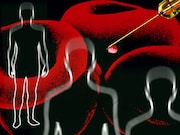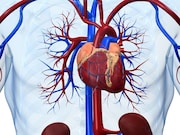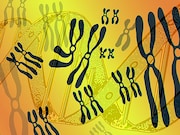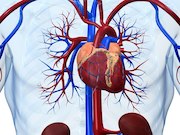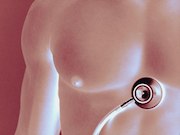Tag: Heart / Stroke-Related: Misc.
2002 to 2014 Saw Hike in AMI Rate in Pregnancy, Puerperium
Rate of acute myocardial infarction one per 12,400 for those hospitalized during pregnancy, puerperium
PFO Closure Plus Antiplatelet Tx Advised for Cryptogenic Stroke
PFO closure plus antiplatelets recommended over antiplatelet therapy alone for patients <60 years
Steroid Abuse Put 60-Year-Old Bodybuilder in the Hospital
Patient was eventually diagnosed with non-ischemic cardiomyopathy
Escitalopram Cuts MACE Risk in Depressed Patients With ACS
Higher risk of major adverse cardiac events with concurrent depression after acute coronary syndrome
Molecular Autopsy May Shed Light on Sudden Death in Young
Ultrarare, nonsynonymous variants seen in 64% of victims of sudden unexplained death in young
WTC-Related PTSD May Up Risk for Stroke, MI in Clean-Up Crew
Similar magnitude of risk in men and women, independent of depression
Five-Year Stroke Rates Lower After PCI Versus CABG
Reduced risk of stroke in the 30-day post-procedural period, but similar risk from 31 days to five years
Factors Identified That Affect Resuscitation Teams’ Success
Team design, roles, communication, training all affect in-hospital cardiac arrest outcomes
Taking Multivitamins/Minerals Doesn’t Improve CVD Outcomes
MVM use not linked to decreased CVD mortality, CHD mortality, stroke mortality, or stroke incidence
USPSTF: Evidence Lacking for Nontraditional CVD Risk Factors
Insufficient evidence for adding to traditional CVD risk assessment in asymptomatic adults



